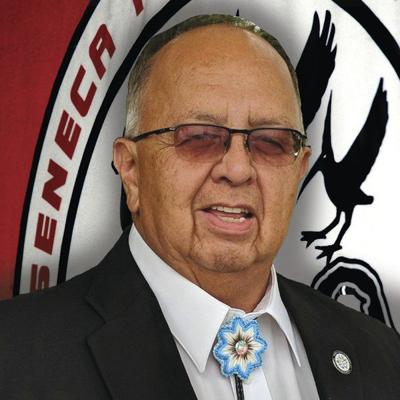The Seneca Nation of Indians has officially challenged the New York arbitration court ruling stating that the tribe owes the state $256 million. The tribe claims that the initial Tribal-State Compact with New York only provided a payment for the first 14 years of a deal reached in 2002.
The Original Agreement
The Seneca Nation of Indians operates casinos in Buffalo, Niagara Falls, and Salamanca, New York. Under the terms of the original Compact signed in 2002, the tribe agreed to pay 25% of its net slot machine revenues from all 3 casinos to the state of New York.
As of January 1, 2017, the Seneca Nation halted payments to the state after 14 years of payment, as per the agreement. The original agreement does not specifically mention continuing revenue sharing after the 14th year, so it halted payments after fulfilling the initial agreement.
New York State’s Demands

The language of the original Compact was not specific about the payment requirements due to the State after the 14 year period. In spite of the “murky language” of the Compact, New York State issued a demand for a lump sum of $256 million from the tribe, dating back to January 1, 2017, when they stopped making quarterly payments.
The State claims that the Nation owes New York $256 million in back payments, which are then redistributed to the local governments in the 3 communities where the Seneca Nation operates casinos. An arbitration panel was assembled by Governor Andrew M. Cuomo. The Governor claimed that the 25% payment by the Seneca Nation was part of an exclusivity deal which allowed them sole access to the casino market share in the region.
The 3-member arbitration panel voted 2-1 in favor of New York State, stating that the Seneca Nation was wrong to withhold payments at the end of the agreement. The payment amounted to roughly $110 million per year, and the State now claims the full amount withheld by the Nation is now due and payable.
Calling for Federal Action
Seneca Nation President Rickey Armstrong Sr. insisted that “we are right on the law, and arbitration panels do not always decide cases on the law, even their law.”
The tribe is also displeased that the state made a decision in 2015 to issue new commercial casino licenses in New York State, in direct violation of the original Compact which offered the Seneca Nation exclusive gaming rights in their region.
Former Bureau of Indian Affairs official Kevin Washburn was the Seneca tribe’s representative on the panel and the single voter against the state. “The ruling rewrites the Compact in a way that harms (the Senecas) and provides an unjustified windfall to the state,” he said.
Following the decision against them, the Seneca Nation has now called upon the Department of the Interior, which oversees the Bureau of Indian Affairs, to get involved in the case. Tribal President Rickey Armstrong, Sr. cited the Indian Gaming Regulatory Act (IGRA), which states that all amendments to Compacts must be reviewed and approved by the Secretary of the Interior before being enforced.
Mr. Armstrong issued the following statement:
“The Seneca Nation and the Seneca people deserve to have our agreements with other governments honored and protected, despite repeated and ongoing attempts to ignore, violate, and, in this case, blatantly change the agreements we have made. By exercising our right to request that the Department review the amendment, the Nation leadership is fulfilling our obligation to the Seneca people to always defend our sovereignty and the sanctity of our agreements.”
Disclaimer: All images are copyright to their respective owners and are used by USA Online Casino for informational purposes only.












